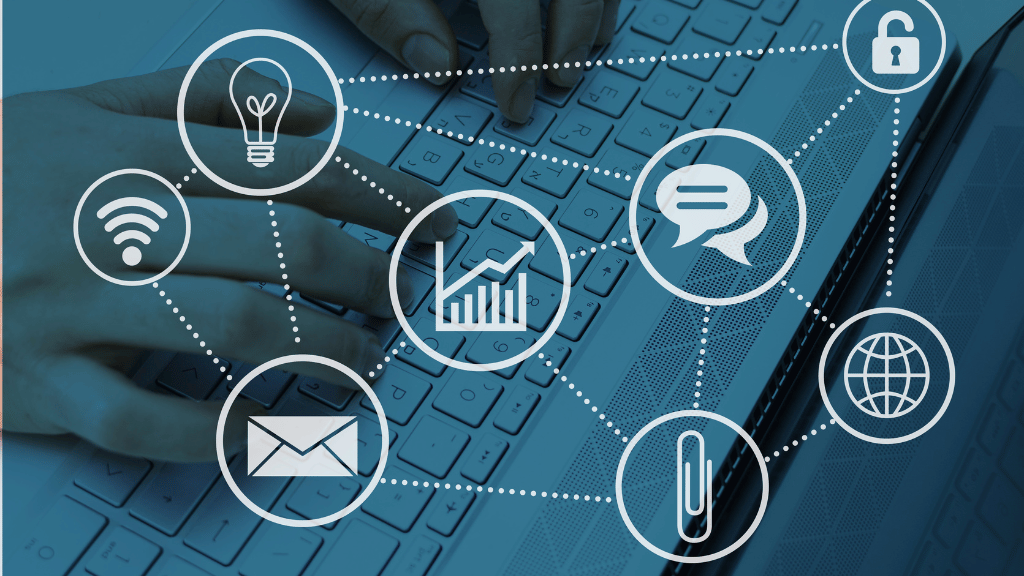The Role of Digital Management Systems in Transforming Healthcare Administration
Digital management systems have emerged as game-changing technologies in the constantly changing healthcare scene, transforming how healthcare administration is conducted. These systems have become increasingly important in reducing administrative procedures, enhancing patient care, and increasing overall operational efficiency as a result of technological improvements and the growing demand for effective healthcare delivery. The numerous ways that digital management systems are transforming healthcare administration are examined in this article.
1. Streamlining Patient Data Management
Effective patient data management is essential for running a healthcare system. Electronic health records (EHR) systems, for example, provide a centralized and accessible platform for storing and retrieving patient data. They simplify data entry, do away with paper records, and allow real-time data sharing between healthcare professionals. Also, interoperability between various systems enables error-free and seamless patient data interchange between healthcare facilities, enhancing care coordination.
Dayna Carlin, Director at NovoPath
2. Enhancing Communication and Collaboration
Digital management solutions let healthcare personnel communicate and collaborate more effectively, which improves patient outcomes. Platforms for secure messaging make it possible to communicate quickly and securely, ensuring prompt access to vital information. California Medical Billing services also benefit from these digital solutions, streamlining the billing process and enhancing accuracy. Collaboration across departments and locales is made possible by virtual meetings and shared document repositories, which support a multidisciplinary approach to healthcare. Real-time information sharing encourages better judgment, which improves care delivery and patient safety.
Cindi Keller, Communications Coordinator at THE CRIMINAL DEFENSE FIRM
3. Optimizing Scheduling and Appointment Management
Scheduling and appointment administration in healthcare environments have been transformed by digital management systems. Patients can conveniently make appointments using online appointment scheduling services, which decreases wait times and improves patient satisfaction. Automated appointment reminders make it easier for people to show up for appointments, ensuring the best use of healthcare resources. Tools for managing waitlists make it possible to allocate canceled or rescheduled appointments efficiently, cutting down on patient wait times and increasing clinic productivity.
Pareen Sehat, Clinic Director of WELL BEINGS COUNSELLING
4. Automating Administrative Tasks
Digital management systems eliminate repetitive administrative chores, giving healthcare administrators back crucial time. Systems for billing and claims processing services automate invoicing, lowering errors and speeding up the reimbursement process. Systems for managing inventories keep track of medical supplies, guaranteeing ideal stock levels and minimizing waste. Administrators can pinpoints areas for improvement and make data-driven decisions thanks to reporting systems that produce real-time analytics and performance indicators.
Sasha Quail, Business Development Manager at claims.co.uk
5. Enabling Data Analytics for Informed Decision-Making
Massive amounts of data are produced by digital management systems and can be used to make educated decisions. Healthcare administrators can get insights into patient outcomes, resource allocation, operational efficiencies, and quality improvement programs with the aid of advanced data analytics tools and techniques. Evidence-based tactics can be informed by data analysis of patterns and trends, resulting in better patient care, cost savings, and overall performance.
Jeff Romero, Founder of Jeff Romero SEO Consulting
6. Ensuring Regulatory Compliance
Regulation adherence is a crucial component of healthcare administration. Healthcare firms can better follow data security and privacy laws thanks to digital management solutions. To protect patient information, they provide strong access controls, encryption safeguards, and audit trails. Additionally, these systems allow for easy adherence to industry-specific compliance frameworks, ensuring that healthcare institutions fulfill their legal requirements and uphold patient confidence.
One of the key areas where digital management systems have made a significant impact is healthcare case management, where they support providers in organizing patient data, streamlining workflows, enhancing coordination across teams, and ultimately improving the overall quality of care.
Timothy Allen, Director at Corporate Investigation Consulting
7. Improving Patient Engagement and Experience
Enhancing patient involvement and experience is made possible in large part by digital management systems. By IoT healthcare solutions patients can securely access their test results, medical data, and appointment scheduling through patient portals. Remote consultations are made possible through telehealth systems, providing patients with ease and accessibility. Through functions like medication reminders, symptom tracking, and customized health education, mobile applications enable users to actively participate in their healthcare experience. Better patient-provider relationships are facilitated by personalized communication channels, which boost engagement and satisfaction.
Tiffany Hafler, Marketing Manager at Fortis Medical Billing
Conclusion
A new era in hospital administration has arrived thanks to the integration of digital management technologies. These solutions have revolutionized the way healthcare businesses run, from streamlining patient data administration to optimizing scheduling, automating tasks, enabling data analytics, guaranteeing compliance, and enhancing patient interaction. Healthcare administrators must embrace and use these technologies to deliver care as the digital world changes.







